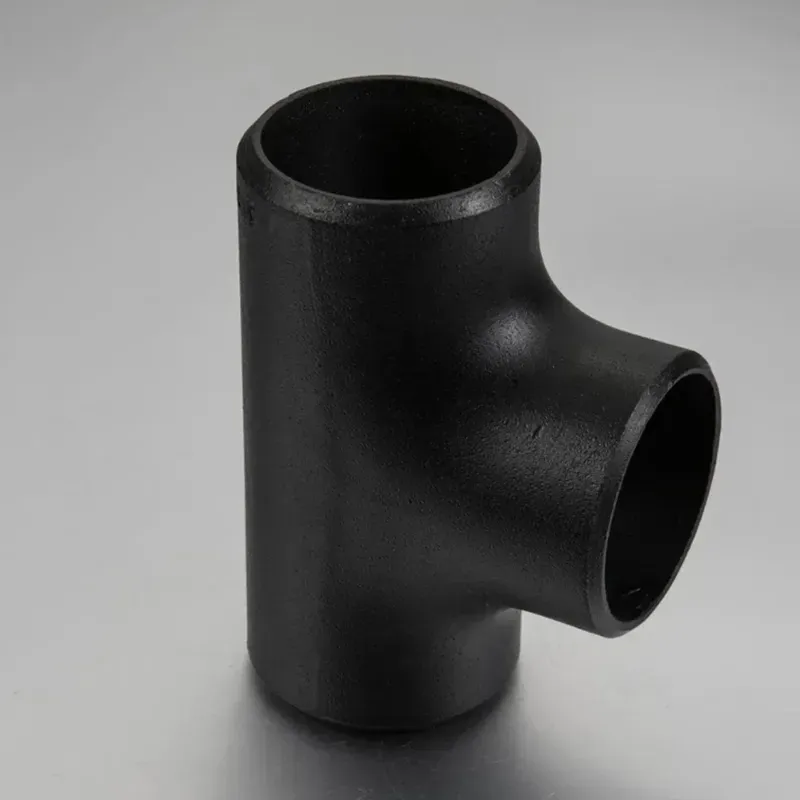-
Cangzhou Yulong Steel Co., Ltd.
-
Phone:
+86 13303177267 -
Email:
admin@ylsteelfittings.com
- English
- Arabic
- Italian
- Spanish
- Portuguese
- German
- kazakh
- Persian
- Greek
- French
- Russian
- Polish
- Thai
- Indonesian
- Vietnamese
- Zulu
- Korean
- Uzbek
- Hindi
- Serbian
- Malay
- Ukrainian
- Gujarati
- Haitian Creole
- hausa
- hawaiian
- Hebrew
- Miao
- Hungarian
- Icelandic
- igbo
- irish
- Japanese
- Javanese
- Kannada
- Khmer
- Rwandese
- Afrikaans
- Albanian
- Amharic
- Armenian
- Azerbaijani
- Basque
- Belarusian
- Bengali
- Bosnian
- Bulgarian
- Catalan
- Cebuano
- China
- China (Taiwan)
- Corsican
- Croatian
- Czech
- Danish
- Esperanto
- Estonian
- Finnish
- Frisian
- Galician
- Georgian
- Kurdish
- Kyrgyz
- Lao
- Latin
- Latvian
- Lithuanian
- Luxembourgish
- Macedonian
- Malgashi
- Malayalam
- Maltese
- Maori
- Marathi
- Mongolian
- Myanmar
- Nepali
- Norwegian
- Norwegian
- Occitan
- Pashto
- Dutch
- Punjabi
- Romanian
- Samoan
- Scottish Gaelic
- Sesotho
- Shona
- Sindhi
- Sinhala
- Slovak
- Slovenian
- Somali
- Sundanese
- Swahili
- Swedish
- Tagalog
- Tajik
- Tamil
- Tatar
- Telugu
- Turkish
- Turkmen
- Urdu
- Uighur
- Welsh
- Bantu
- Yiddish
- Yoruba

Dec . 16, 2024 23:13 Back to list
An Overview of ANSI B16.5 Standards for Flanges and Fittings in Pipelines
Understanding ANSI B16.5 A Comprehensive Guide to Flange Standards
The American National Standards Institute (ANSI) plays a pivotal role in standardizing industrial practices in the United States. Among these standards, ANSI B16.5 specifically addresses the design and manufacturing of flanges, which are integral components in piping systems. This article delves into the significance of ANSI B16.5, exploring its specifications, applications, benefits, and the various considerations that professionals need to keep in mind.
What is ANSI B16.5?
ANSI B16.5 is a standard that specifies the requirements for wrought flanges and flanged fittings made from various materials, including carbon steel, stainless steel, and alloy steel. This standard is applicable to sizes ranging from 1/2 inch to 24 inches in nominal pipe size and includes pressure-temperature ratings, materials, and dimensions.
Categories of Flanges Under ANSI B16.5
The standard outlines several types of flanges, each designed for specific applications and scenarios. The most common types include
1. Slip-On Flanges These flanges are designed to slip over the pipe and are generally welded both inside and outside to prevent leakage. 2. Blind Flanges Used to seal the end of a piping system, blind flanges are critical in processes that may require maintenance or modifications.
3. Weld Neck Flanges Featuring a long tapered neck, these flanges are welded directly to the pipe, making them suitable for high-pressure applications.
4. Socket Weld Flanges These flanges are designed for smaller diameter pipes and are inserted into the flange. The connection is secured with a full penetration weld.
5. Threaded Flanges As the name implies, these flanges are threaded internally to allow for attachment to a piping system without welding, making them easier to install in certain applications.
Importance of ANSI B16
.5 StandardsAdhering to ANSI B16.5 standards ensures the safety and reliability of piping systems across various industries, including oil and gas, chemical processing, water treatment, and power generation. By providing consistent specifications for flange design and manufacturing, the standard helps minimize the risk of leakage and mechanical failure, which can lead to costly downtime or hazardous situations.
Applications of ANSI B16.5 Flanges
ansi b 16 5

Flanges conforming to ANSI B16.5 standards are widely used in numerous applications, such as
- Petroleum Refineries Flanged connections are vital for maintaining the integrity of pipelines transporting crude oil and gas.
- Chemical Plants ANSI B16.5 flanges are essential for connecting various components in chemical processing plants, where strict safety standards must be upheld.
- Power Generation Turbines and boilers in power plants rely on ANSI B16.5 flanges to ensure sturdy and leak-proof connections in high-pressure environments.
Benefits of Using ANSI B16.5 Compliant Flanges
1. Interchangeability Flanges manufactured according to ANSI B16.5 can be easily interchanged with other flanges of the same size and pressure rating, which simplifies maintenance and repairs.
2. Strength and Durability The materials specified in the standard provide significant strength and durability, which are vital for long-lasting installations.
3. Pressure Ratings ANSI B16.5 includes various pressure rating classes, allowing engineers to select flanges appropriate for their specific operating conditions.
4. Cost-Effectiveness Using standardized flanges can lead to reduced costs in manufacturing and maintenance, as they eliminate the need for custom solutions.
Considerations for Using ANSI B16.5 Flanges
While ANSI B16.5 provides a robust framework for flange design, engineers and professionals must also consider factors such as the environment in which the flanges will be used, the specific materials of construction, and the compatibility of gaskets and bolts with the flanges. Thorough understanding and adherence to these considerations can further enhance the reliability and safety of piping systems.
In conclusion, ANSI B16.5 serves as a fundamental standard in the world of industrial piping. Its comprehensive specifications ensure the manufacturing of reliable and robust flanged connections critical to the safe operation of diverse engineering applications. By understanding and applying these standards, professionals can contribute significantly to the efficiency and safety of their respective industries.
Latest news
-
ANSI 150P SS304 SO FLANGE
NewsFeb.14,2025
-
ASTM A333GR6 STEEL PIPE
NewsJan.20,2025
-
ANSI B16.5 WELDING NECK FLANGE
NewsJan.15,2026
-
ANSI B16.5 SLIP-ON FLANGE
NewsApr.19,2024
-
SABS 1123 FLANGE
NewsJan.15,2025
-
DIN86044 PLATE FLANGE
NewsApr.19,2024
-
DIN2527 BLIND FLANGE
NewsApr.12,2024
-
JIS B2311 Butt-Welding Fittings LR/SR 45°/90° /180°Seamless/Weld
NewsApr.23,2024











